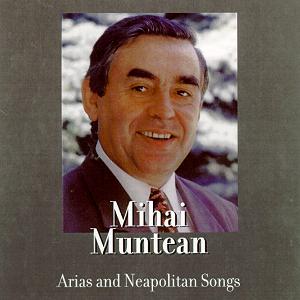|
<< -- 3 -- Roderic Dunnett LIFE IN THE OLD TIGER

The outstanding tenor Mihai Muntean (or Munteanu; either, he explains,
is correct) is one of many who can point to the lifeline foreign earnings,
from Italy and elsewhere, have brought. They were instrumental, he says,
in helping him fund his son's education in London : Andrei Muntean
is now a professor of history and politics in Philadelphia, USA.
Muntean, past the heyday of his voice but also a respected teacher --
one of his younger pupils is Marcel Furnica, a most promising young baritone
who sang the Sacristan impressively in the Pavarotti Tosca at London's
Royal Opera House -- owes nearly everything, he emphasises, to his own singing
teacher. Nicolae Diduchenko was a Romanian whose own career reached its
crux in German-occupied Odessa. 'I modelled myself almost entirely
on Diduchenko,' says Muntean; 'yet he might not have approved,
for he understood perfectly that the teacher's role is to help students
find their own voice, not to graft a particular sound or voice onto them.
I try to follow this dictum in my own teaching; and also adhere to another
of Diduchenko's principles : that above all, the voice has to be natural,
not invented.' [Listen -- Bizet: 'La fleur que
tu m'avais jetée' from Carmen.]
Born in the modern border village of Criva by the River Pruth, on the
Romanian-Ukrainian border (north-east Romania and Moldova together formed
the medieval kingdom of Moldavia, which reached its heyday under Stefan
cel Mare -- Stephen the Great -- in the late 1400s) Muntean received his earliest
encouragement from his father ('who still sings at over ninety!')
and, after his mother's death, when he was only ten, from a musical
stepmother who 'wisely warned me about the dangers of becoming a professional
performing artist!'

Mihai Muntean - Arias and Neopolitan Songs. © 2001 AMG Inc. Photo © Sergei Kartashov
|
The quality of music teaching he enjoyed at school -- in what was then
upcountry Soviet Moldavia, or the Moldavian SSR, bordering the Ukraine --
was enviable, he says, both vocal and instrumental. He remains fiercely
proud of this tradition, which was, he emphasises, almost universal : 'Music
teaching was, and still is, something truly unusual and special in the Moldavian
SSR; and that applies to Primary Schools still, the length and breadth of
present-day Moldova.'
Continue >>
Copyright © 6 October 2002
Roderic Dunnett, Coventry, UK

|

